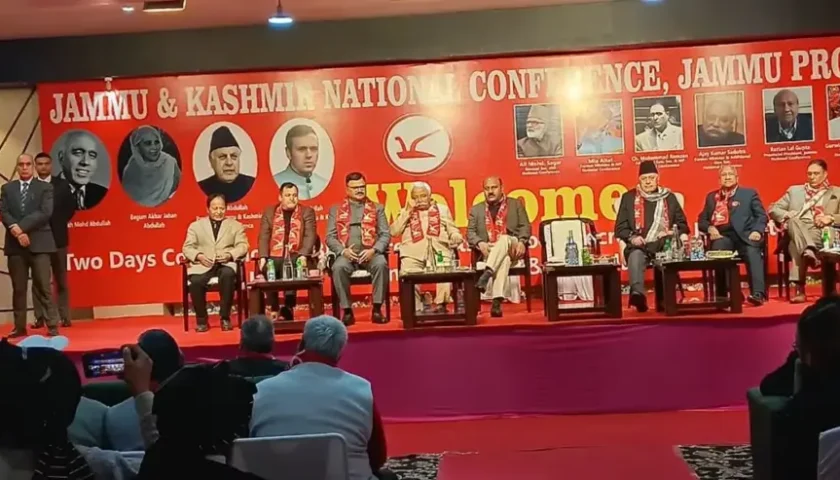A Bold Proposal with Complex Implications
Former U.S. President Donald Trump has once again stirred diplomatic conversations by offering to mediate between India and Pakistan on Kashmir, just hours after claiming credit for a ceasefire agreement between the two nations. His remark that a solution may take “a thousand years” underscores the complexity of the dispute, but also raises questions about the feasibility of external mediation in South Asia’s most volatile geopolitical conflict.
While India has historically rejected third-party involvement, Pakistan has continuously sought international mediation, citing humanitarian concerns and territorial claims. The United States has previously been involved in diplomatic efforts, but with history, military tensions, and political interests at play, is Trump’s offer realistic, or simply political rhetoric?
Kashmir Conflict: Why the U.S. Is Interested
A Geopolitical Flashpoint
- Kashmir remains a contested region since the partition of India in 1947, leading to wars, cross-border skirmishes, and ongoing insurgency.
- Both India and Pakistan are nuclear powers, making military escalations dangerously unpredictable.
- China has territorial interests in Ladakh, adding another layer of complexity to regional diplomacy.
U.S. Interests in Kashmir
- South Asia is strategically vital for U.S. foreign policy, given its proximity to China, Russia, and the Middle East.
- The U.S. maintains strong diplomatic ties with both India and Pakistan, balancing military and trade partnerships.
- Washington has previously attempted ceasefire agreements, but India firmly maintains that Kashmir is a bilateral issue.
Trump’s proposal for mediation comes as tensions rise, but historical precedents show that U.S. involvement in Kashmir has had limited success.
Trump’s Kashmir Offer: Political Statement or Real Diplomatic Push?
Claiming Credit for the Ceasefire
- Trump claimed the recent ceasefire agreement was influenced by U.S. mediation, though India refuted this claim.
- Indian officials insist the ceasefire was negotiated directly between Indian and Pakistani military leadership, without U.S. involvement.
- Pakistan acknowledged U.S. diplomatic engagement, but did not confirm its direct role in negotiations.
Trump’s History of Kashmir Commentary
- In 2019, Trump publicly offered to mediate between India and Pakistan, but India rejected the offer.
- Pakistan welcomed his willingness, citing Kashmir’s humanitarian concerns and its status as a disputed territory.
- The U.S. has traditionally refrained from intervening too directly, given India’s stance on foreign involvement in Kashmir.
While Trump’s remarks generated global discussion, they remain politically ambiguous—whether they signal a real mediation effort or serve as diplomatic rhetoric is uncertain.
India’s Stance on U.S. Mediation: Why New Delhi Rejects External Involvement
Kashmir Is an Internal Matter
- India has repeatedly stated that Kashmir is a bilateral issue, rejecting third-party intervention.
- The government has maintained that discussions with Pakistan must be based on past agreements, such as the Simla Accord (1972).
- India’s move to revoke Kashmir’s special status (Article 370) in 2019 solidified its stance that the region is an internal part of India.
Concerns About Foreign Influence
- India fears international mediation could favor Pakistan, particularly in pushing for UN-led negotiations on territorial control.
- China’s strategic interests in Kashmir and Ladakh complicate the situation further, making India wary of foreign involvement.
- India sees Trump’s statements as interference, asserting that diplomatic solutions must come directly from New Delhi and Islamabad.
Trump’s offer may be diplomatically controversial, but without India’s acceptance, U.S. mediation in Kashmir remains unlikely.
Pakistan’s Perspective: A Call for Global Intervention
Support for International Mediation
- Pakistan has long sought third-party involvement, citing Kashmir’s disputed status.
- The Pakistani government argues that Kashmir is an occupied territory, demanding resolution based on UN Security Council Resolutions.
- Islamabad welcomed Trump’s previous offers, hoping for a diplomatic breakthrough.
Pakistan’s Diplomatic Outreach
- Pakistan often leverages international forums, including the UN and OIC, to push its stance on Kashmir.
- Islamabad sees U.S. influence as a way to pressure India, given Washington’s strategic partnerships in South Asia.
- While Pakistan faces international scrutiny on terrorism and cross-border insurgency, it continues advocating for Kashmir’s “right to self-determination”.
Trump’s comments may have boosted Pakistan’s narrative, but India’s firm stance ensures that U.S. involvement will remain contested.
What Happens Next? Can the U.S. Play a Role in Kashmir?
- India and Pakistan remain cautious, with no indication of further diplomatic talks through U.S. mediation.
- Military tensions persist, despite the ceasefire agreement. ✔ Global leaders may intervene, but India’s rejection of third-party mediation remains a key obstacle.
- The Kashmir conflict continues, shaped by history, territorial ambitions, military engagements, and international alliances.
Trump’s unexpected offer has added a new layer to the India-Pakistan conflict, but whether it leads to meaningful diplomatic progress or remains political rhetoric is yet to be seen.
Bottom-Line: A Conflict That Resists Mediation
While Trump’s remarks on Kashmir mediation sparked discussions, the realities of diplomacy, national interests, and historical tensions make any external solution highly complex.
India’s firm rejection of third-party involvement, Pakistan’s call for global intervention, and Washington’s careful balancing of interests in South Asia mean that a lasting Kashmir solution—whether facilitated by the U.S. or bilateral talks—remains uncertain.






